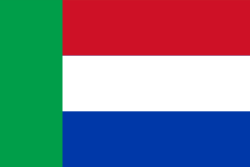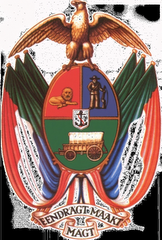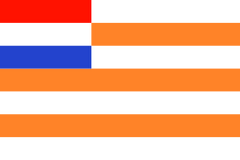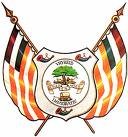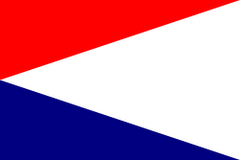South Africa - Civil War or Peaceful split?
South Africa - Civil war or Peaceful split?
By Mike Smith – Cape Town 9 December 2007
Watching the current power struggle within the ANC, it is clear that the party can no longer exist in its current form after the Polokwane conference or in the run-up to the 2009 elections. A split is inevitable. This will be no peaceful divorce. The split will be messy and we will see similar scenes as that of the early ‘90s; Xhosas against Zulus, Communism against Tribal Nationalism, basically one big orgy of violence and death.
In the early ‘90s the white population of South Africa was mostly excluded from this fight and it was only the army and police who actually got involved trying to keep the sides separate. This time around it will be different. Whites will be sucked into this future conflict and it will be during this time that we might see the Afrikaners reclaiming their two Boer Republics. The Zulu’s will claim KwaZulu Natal and the Cape Coloureds along with some liberal whites will claim the Cape. This break-up of South Africa is a serious possibility if we look at some examples.
The first example is the former Yugoslavia, an artificially created Kingdom since 1918 and an artificially created Socialist state since 1943, until its breakup in 1991. Yugoslavia today are split up into six independent countries and two autonomous provinces and it serves as an example of what happens when different races, cultures and religions are forced together in the name of multiculturalism, diversity and “Nation building”. It is artificial and it cannot last!
We further saw in Yugoslavia that the Communist never give up land or grants a people autonomous rule without a fight. The various freedom wars were bloody and the conflicts are still not fully solved, as can be noted in Kosovo.
A bloody civil war is not always the answer. Are there examples of countries that have had peaceful splits? Yes certainly.
Norway peacefully separated from Sweden in 1905. Norway's growing dissatisfaction with the union with Sweden during the late 19th century combined with nationalism prompted the dissolution of the union. After a national referendum confirmed the people's preference for a monarchy over a republic, the Norwegian government offered the throne of Norway to the Danish Prince Carl and Parliament unanimously elected him king. He took the name of Haakon VII, after the medieval kings of independent Norway. Today the relationship between Norway and Sweden is better than it ever was when they were in a union.
Czechoslovakia is another example. In February 1948 the Communists seized power, winning an electoral victory in May. The country was divided into 19 regions and, in 1960, into 10 regions plus Prague and Bratislava. During the 1960’s there were some uprisings and calls for democratic change, but in 1968 the USSR sent 600,000 troops to brutally suppress these demonstrations and return rule to the orthodox line.
Influenced by events elsewhere in Eastern Europe, a series of initially student-led pro-democracy rallies were held in Prague in November 1989. The 10 million Czechs saw economic reform as more important than State reform, which was high on the priority list of the 5 million Slovaks. Instead of fighting and blocking each other, the Czechs and the Slovaks decided that a split would be in the best interest of both sides. Many people who were opposed to the split, said that it would be catastrophic, but it went smoothly. Buildings in the Czech part were given to the Czechs and those in Slovakia to the Slovaks. Moving assets and debt were split up evenly and the Czech Republic and the Slovak Republic became sovereign states on 1 January 1993.
Recently we have seen the creation of the Scottish parliament, giving the Scots more self rule and it might even lead to an independent Scotland in the future. I certainly will not rule that possibility out.
In Belgium we see the Dutch speaking Flemish wanting to break away from the French speaking Wallonians. The Flemish are economically stronger than the Wallonians and so strong is the cultural and language divide between these two groups, that less than one percent of all Belgium marriages are between Flemish and Wallonians; this in a country where these two groups are both white and Christian. People there say that the split is coming soon, it is only a matter of time and the fuse of the powder keg is burning ever shorter. I certainly hope that the split will be a peaceful one.
If we now turn our attention to South Africa, it is only logical to deduce that South Africa will go the same way as Yugoslavia. South Africa was also artificially created in 1910. The two British colonies of the Cape and Natal along with the two former Boer Republics of the ZAR and the Orange Freestate, were forced together into the Union of South Africa and former autonomous states were reduced to mere provinces. When the ANC took over, they made it nine provinces and artificially created what Mandela refers to as “The Rainbow Nation”. South Africa has nine official languages and fourteen major tribes or ethnic groupings, each with its own distinct culture, traditions and religion. It is madness to think that these groups will live “peacefully” together for much longer. The Marxist, terrorist ANC’s policies of multiculturalism and ethnic diversity is a ticking nuclear time bomb, let alone a burning fuse on a powder keg.
My prediction is that the break up of South Africa will start in KwaZulu-Natal with some student uprisings. The Zulus want to be independent; next will follow the two Boer Republics and lastly the Cape. It is during this time that other smaller nations will also claim independence and new borders will be defined.
A peaceful split would definitely be in the best interest of all, but somehow I do not think it will be possible; not as long as the Communists are in control of South Africa.



 Teen dié tyd weet almal dat Jacob Zuma die ANC-leierskapsverkiesing loshande gewen het met 2 329 stemme teenoor Mbeki se 1 505. Die Zuma-faksie het ook skoonskip gemaak sover dit die res van die hoogste posisies in die party betref.
Teen dié tyd weet almal dat Jacob Zuma die ANC-leierskapsverkiesing loshande gewen het met 2 329 stemme teenoor Mbeki se 1 505. Die Zuma-faksie het ook skoonskip gemaak sover dit die res van die hoogste posisies in die party betref.